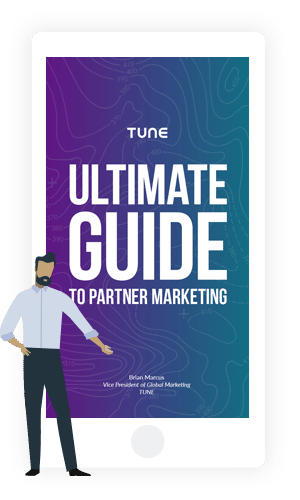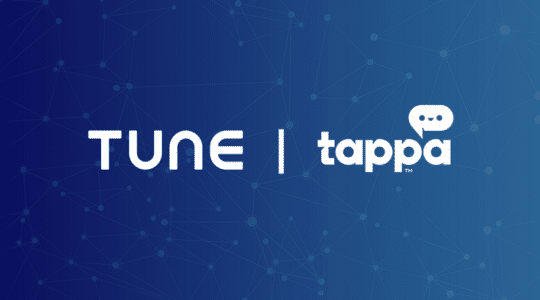
Photo by Fabian Blank on Unsplash
It’s no secret that financial services affiliate marketing is on the rise. From 2011 to 2017, affiliate marketing spend by the big four banks rose from 11.7% of overall digital ad spend to 14.1%. And overall spend on affiliate marketing is expected to reach nearly $12 billion in 2025 — and that’s just in the United States. Even with regulations that slow progress in the financial industry, fintech brands are catching up to the times. They’re launching and acquiring apps, leveraging influencer marketing, and starting loyalty programs. And it couldn’t be a better time to do so.
In this blog post, we outline how financial services companies can use affiliate marketing to acquire customers, reach new audiences, and grow affiliate programs.
Best Partners for Financial Services Affiliate Marketing
In essence, affiliate marketing for financial services is about leveraging different kinds of partners — publishers, bloggers, influencers, content creators, TikTok stars, Twitch streamers, and so on — to promote a product, service, or company to their audiences. As a model based on performance, affiliate marketing can be a sound investment for financial services and fintech companies. But that doesn’t mean brands should be careless with marketing budgets or throw anything at the affiliate wall just to see what sticks.

Done right, financial services affiliate marketing can bring in big benefits:
- Open untapped audiences for incremental growth
- Access high-quality, engaged, and/or niche customers
- Improve ROI versus traditional (non-performance-based) advertising
- Target and pay only for desired results
Before you can reap the rewards, however, you have to find the right finance-minded affiliate partners to bring them in. Below, we present five of the best kinds of partners to help financial services companies raise the bottom line.
Comparison Sites
Comparison sites like Credit Sesame, Policygenius, Finder, FinanceBuzz, and Bankrate help consumers sift through a variety of financial products to identify which are right for them. These products can include credit cards, mortgage rates, loan options, and insurance companies. As the name implies, comparison sites compare different interest rates, annual fees, and incentives to open new accounts, and link directly to these resources when a consumer finds an option they like. Comparison partners are one of the most common financial services affiliate sites you’ll see.

Community and Content Publishers
With over 200 million ad blockers installed across browsers everywhere, consumers are more resistant than ever to in-your-face advertising. Luckily, publishers and blogs lend themselves nicely to content that consumers actively seek out, looking for everything from expert information to personal recommendations. Personal finance affiliate sites like The Penny Hoarder, Money Crashers, Business.com, The College Investor, Finance Girl, and personal blogs provide articles, reviews, offers, and recommendations about financial products and services.
Content affiliates are incentivized to promote financial services companies in exchange for commissions. Depending on budget and offering, there is a wide range of how banks and other finance institutions pay bloggers. Bank of America, for example, reportedly offers $120 per credit card approval; Discover pays $115, and TurboTax gives 15% commission per sale.

Influencer Affiliates
They say 2021 was the year of influencer marketing. While it might take some time to find the right affiliate influencer, financial services companies can also capitalize on the trend. Research your industry to find famous gurus, or niche experts, who might be willing to promote your brand on social media. Check specialty websites that rank influencers by vertical, engagement, location, and cost. Find out which affiliates your competitors are working with, and how other fintech brands grew their influencer relationships. Or just find an agency that specializes in influencer marketing, and have them do it all for you.
Remember: Word of mouth is still one of the most potent forms of marketing. Customers who follow a specific influencer will be more likely to trust their recommendations over any review site full of strangers.

Deal and Coupon Partners
Deal and coupon sites like The Smart Wallet, RetailMeNot, and Brad’s Deals incentivize readers with coupons and discounts. These can be applied when opening new personal banking accounts, enrolling in new financial courses, and taking advantage of credit card offers, for example.
Deals and coupons are growing increasingly popular for financial services affiliate marketing.

Loyalty and Rewards Affiliates
Loyalty and rewards affiliates offer cash back, points, or other types of rewards for using a product or service. Companies like Rakuten (formerly Ebates), TopCashback.com, and Swagbucks offer paid gift cards and points for taking surveys, signing up for new subscriptions, or watching videos. Like deal and coupon partners, loyalty affiliates are an excellent option for financial services companies to keep in mind. After all, physical and digital rewards have been found to increase brand exposure and conversions by more than 400%.

How to Start Financial Services Affiliate Marketing
Finding the right partners is only one step in successful financial services affiliate marketing. Finance and fintech brands must also determine goals and budgets, set metrics, document marketing policies, implement compliance controls, and manage technology to pull it all together.
If you’re ready to launch a financial services affiliate program, download our Ultimate Guide to Partner Marketing for a step-by-step breakdown that will put you on the path to success. Or, if you’re not ready to jump in just yet, get an introduction to the industry and vertical-specific tools with our two-page Financial Services Playbook.
What other affiliate partners do you work with as a financial services or fintech brand? Let us know in the comments!
This article was originally published on PerformanceIn.com in January 2020 and has been updated for accuracy and comprehensiveness.
Author
Becky is the Senior Content Marketing Manager at TUNE. Before TUNE, she handled content strategy and marketing communications at several tech startups in the Bay Area. Becky received her bachelor's degree in English from Wake Forest University. After a decade in San Francisco and Seattle, she has returned home to Charleston, SC, where you can find her strolling through Hampton Park with her pup and enjoying the simple things in life.




Awesome post! Keep up the great work! 🙂